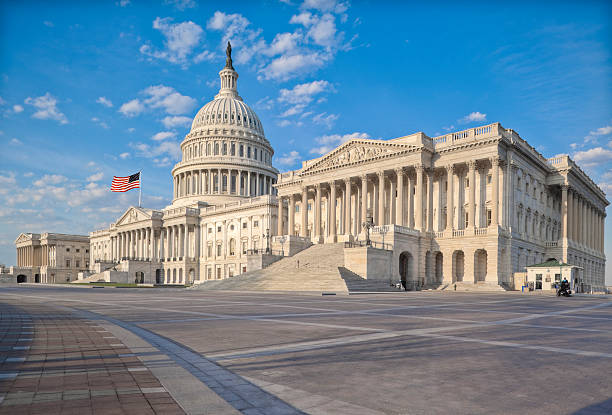Tax Cuts, Benefit Shifts and Workforce Impact: Breaking Down the ‘One Big Beautiful Bill Act’
Last Updated on May 29, 2025
The House of Representatives has narrowly passed President Donald Trump’s sweeping “One Big Beautiful Bill Act,” setting in motion a range of economic, tax and social policy reforms that could significantly affect employers and HR professionals across the country. While it still requires Senate approval, understanding the potential implications now is critical for proactive workforce planning.
Overview of the ‘One Big Beautiful Bill Act’
Dubbed the “One Big Beautiful Bill Act,” this legislation combines elements of tax reform, budget restructuring and social program changes- each of which could have ripple effects on hiring, benefits administration, employee retention and compliance.
Notable Provisions That May Affect Human Resource and Payroll Departments
- Workforce Pell Grants for short-term, high-skill training programs (150-600 hours) aligned with in-demand jobs
- Elimination of Federal Income Taxes on Tips and Overtime Pay.
- Creation of “Trump” tax-advantaged savings accounts for education, housing and retirement
- Includes a pilot program for employer contributions, which could potentially affect payroll systems and benefits planning
- Health Savings and Reimbursement Accounts:
- Expands Eligibility:
- Allows Medicare Part A enrollees to contribute to HSAs
- Permits both spouses to contribute to the same HSA
- New Qualified Expenses:
- Includes physical activity, fitness and exercise as eligible HSA expenses
- Allows FSA and HRA conversions to HSAs
- Expands the use of Individual Coverage HRAs (ICHRA)
- Codifies the use of HRAs integrated with individual market coverage allowing employers to:
- Reimburse employees for premiums on individual health insurance plans
- Offer ICHRAs as a tax-free alternative to traditional group health insurance
- Codifies the use of HRAs integrated with individual market coverage allowing employers to:
- Expands Eligibility:
Potential HR and Employer Impacts
1. Changes to Employee Compensation and Tax Withholding
The elimination of federal taxes on tips and overtime pay may alter employees’ take-home pay. While this could enhance recruitment and retention in industries such as hospitality, retail and healthcare, payroll systems will require updates to reflect the new tax treatment.
2. Shifts in Insurance and Health Benefits
The creation of “Trump” tax-advantaged savings accounts along with a pilot program for employer contributions, which will require updates to payroll systems and benefits planning. The changes to Health Savings Accounts (HSAs), Flexible Spending Account (FSA), Health Reimbursement Arrangement (HRA) (including ICHRAs) will necessitate updates to benefits administration systems and employee communication.
3. Potential for Increased Turnover in Public-Dependent Demographics
With social programs under pressure, employees in vulnerable demographics may seek higher-paying opportunities, relocate, or leave the workforce altogether. Ensure that you are checking in on your employees and HR professionals to best support them and avoid burnout.
What Employers Should Do Now
Although the bill has passed the House, it still faces scrutiny in the Senate and is very likely to undergo additional changes. However, HR leaders should not wait to act. Now is the time to begin scenario planning with your internal teams to assess potential impacts and prepare accordingly. As changes to pay structures, tax treatment and benefits emerge, proactive communication with employees will be critical.
Educating your workforce on what to expect will help manage concerns, reduce confusion, and maintain trust during the transition. Additionally, it’s essential to be prepared to audit and adjust HR policies once the final version of the bill has passed. Be prepared to revise payroll practices, benefits offerings, tax reporting procedures and recruitment strategies to remain compliant and responsive to employee needs.
Preparing Your Workforce for What’s Ahead
Whether seen as a stimulus or a source of fiscal uncertainty, the “One Big Beautiful Bill Act” signals a potentially transformative shift in federal economic policy. For HR professionals and business leaders, the priority should be readiness: understanding the potential impact on your workforce while building agile strategies to adapt.
For more insights or assistance with your organization’s HR strategy, handbooks or compliance efforts, contact MyHRConcierge today at ccooley@myhrconcierge.com, 855-538-6947 ext. 108. Or, schedule a free consultation:

